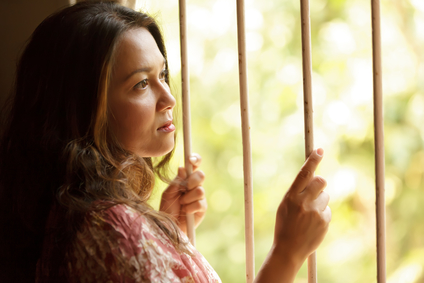Omicron is on the rise, and couples and families in Michigan and across the country are contemplating another winter stuck inside with the same faces. Quarantines, school shutdowns, and recommendations to “stay home, stay safe” are an important part of the country’s pandemic response. But they also mean that couples in crisis are stuck together, and that can aggravate existing issues within the relationship. Here are some strategies for handling couples’ issues during COVID.
How COVID is Affecting Couples’ Relationships
Early in the pandemic, when states and countries were in lockdown, many couples expressed negative changes in relationship satisfaction during the crisis. In July 2020, a full 30% of married people were annoyed with their spouses. However, many more unmarried couples (71%) said their relationship had gotten more serious over the course of the pandemic.
This can have relationship ending effects. In March 2020, when China came out of lockdown, the country experienced a spike in divorces. And domestic violence and abuse have been rising drastically since January 2020 worldwide.
These negative responses make sense. Dealing with any crisis is emotionally taxing. Enduring a two-year-long emergency is exhausting, making pandemic fatigue a real concern. Stress can put a strain on any relationship. That includes the ones strong enough to have weathered the first several waves of the pandemic.
Feeling Stuck Together? Here are 7 Strategies to Weather the Pandemic
The news of skyrocketing numbers of Omicron infections may have you wondering if your relationship will survive another winter stuck together at home. If so, here are some tips to help you address the issues that can arise from too much face time.
Understand Each Other’s Coping Mechanisms
High stress puts your coping mechanisms to the test. Coping mechanisms can be adaptive (good) or maladaptive (bad) and include:
- Prayer or mediation
- Distraction
- Physical activity
- Humor
- Addiction (drugs, alcohol, eating disorders, exercise, TV, etc.)
- Avoidance / withdrawal
- Taking stress out on others
Being able to identify your partner’s behavior as a coping mechanism can help you avoid assigning blame, and instead respond with compassion when they are feeling stressed.
Ask Questions When You Want to Accuse
If you feel attacked, betrayed, or slighted during this stressful period, it may be because of an unrecognized coping mechanism. It is easy to accuse your spouse of doing things on purpose. Instead, ask questions:
- How are you feeling?
- Why did you choose to do this?
- Is something happening that you need to talk about?
Listening is a crucial tool to handling couples’ issues, during COVID, and anytime stress is high.
Set and Respect Boundaries and Alone Time
Working remotely and staying home means you’re likely spending a lot of time face-to-face with your partner. It is important for each partner to have some solitude – to process their stress, focus on their work, or just enjoy their own activities. Trade for it if you have to. But once a boundary is set, respect it.
Recognize Stress-Induced Arguments
Stress can easily translate into anger. Getting mad is a release for the build up of stress. All too often, the target of that anger is your spouse. Your partner’s habits haven’t suddenly become more annoying, but stress may make it harder for you to overlook the little things. Be mindful of your moods. When stress triggers a fight, know that that is what happened so you can resolve it more easily.
Take Time Outs from Conflict
Once you have identified a stress-induced argument, call a time out. Either partner can do this. Ask for the conversation to be paused and return to it later (ideally within 24 hours) after the emotion of the moment has passed. This will allow you to discuss your concerns, rather than fight over them.
Plan Around Immovable Objects in Your Schedules
Being flexible is essential to handling couples’ issues, especially during COVID. But somethings simply can’t be moved. Plan ahead and schedule for each other’s commitments. This avoids surprises and shows your partner you respect their priorities.
Get Intimate to Relieve Stress
Spending time together may emphasize the unattractive parts of your relationship, but intimacy, especially sexual intimacy, is a stress reliever. Set aside time to bet together romantically. This will help you both open up to one another and improve your relationship’s chances of weathering the pandemic.
Get Help from a Couples’ Counselor to Survive Staying at Home
It is okay to struggle with couples’ issues when stress is high. If you are worried about your relationship, a couples’ counselor can give you new techniques to reduce stress and resolve conflict while you are stuck together at home.
David Stanislaw is a psychotherapist with over 30 years of experience. helps individuals and couples learn strategies for reducing stress within their relationships. Contact David Stanislaw to get help today.


 Common Treatments for Depression
Common Treatments for Depression Are Childhood Family Patterns Affecting Your Marriage?
Are Childhood Family Patterns Affecting Your Marriage? 7 Ways Therapy Can Make You a Better Parent
7 Ways Therapy Can Make You a Better Parent